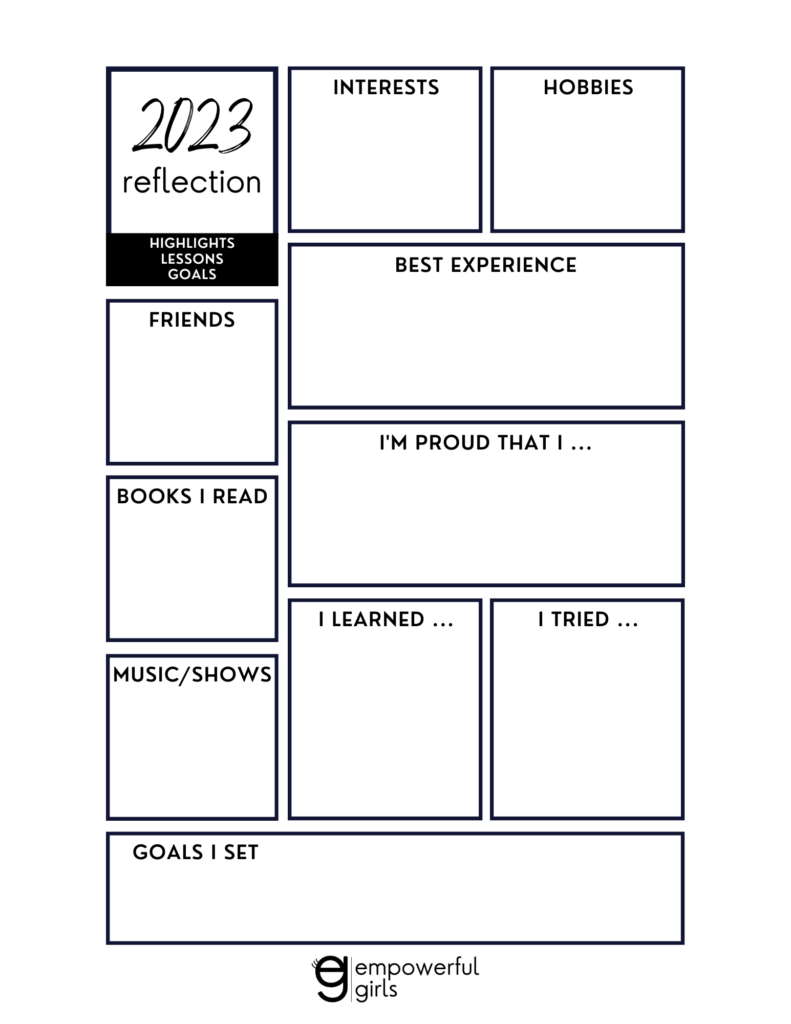
Year Reflection
At the end of every year or beginning of a new one, people often remember all the memories, goals, and things that happened that year. It can be fun to reminisce looking at pictures or videos or past journal entries to remind us of the details. Sometimes though we might get caught up in what didn’t happen, or the stuff we didn’t do, or the goals we didn’t reach. And if left unchecked, those thoughts may start to snowball, growing with every mistake or disappointment or fail. We may longingly look back on opportunities we wish we could’ve had, or regret the risks we took that didn’t pay off, or agonize over the times things didn’t work out the way we wanted.
Rumination
This pattern of thinking can lead to rumination, which is like letting your mind replay clips of negative thoughts, feelings, and moments, stuck on repeat. We ruminate for various reasons. Sometimes we hope that reexamining every detail will sear the memory in our brain so we never repeat the same mistake. Other times, because of past experiences, our default response may be to view life through a more negative lens, like “Here we go again …” Or we may be overly concerned about what other people think of us, due to perfectionism or people pleasing, so we scrutinize the experience not just from our point of view but also through how others see us.
Rumination is a downward spiral, and will only make you feel progressively worse, especially about yourself. It’s like, you’ve already taken out your the, but before the garbage truck comes, you go back out to the dumpster, pull out a bag, open it up, and rummage through it to remind yourself what’s in it and how it smells. And then, even after the trash gets picked up, you decide to trek out to the garbage dump to find that same trash bag, open it up again, and go through its contents that smell even more foul now. Why do we do that to ourselves mentally? Some people believe that fear, shame, and punishment will encourage us to change or improve, but negative motivation is not as effective as positive motivation.
Reset with Distrations
If you find yourself dwelling on what went wrong or you get stuck in a negative thought loop, first help yourself reset with a distraction. Call a friend who makes you feel good or text them something kind or funny. Turn on music–not songs that will make you feel worse, ones that help you feel better. Play with a pet–if you don’t have one, visit a friend’s or go to the pet store. Draw a picture to give to someone. Move your body–jumping jacks, walk around the block, impromptu dance party. Read a book and get caught up in someone else’s story. Clean something, it can feel satisfying to restore order even in small ways. Watch a video that makes you smile or laugh–baby animal videos can accomplish both of those things.
Practice Mindfulness
So once you’ve reset, how can you look back, whether on the past years’ events or experiences as they happen, in a more productive way? Start out by practicing mindfulness–state the facts of what happened without assigning meanings or conclusions. For example, you ran for student council and lost–those are facts. But if I said you ran for student council and lost because you’re not popular or which means you’re a loser–those are meanings and conclusions, and they aren’t at all helpful. That’s why it’s important to use non-judgmental awareness when practicing mindfulness. Stay neutral as you say what happened without adding a filter of good or bad.
Recognize Emotions
Next, recognize your emotions. You are human and you have feelings and they are all valid. You’re allowed to feel negative emotions; you just can’t let them jump to conclusions for you. For instance, you and your sibling didn’t get along well this year (those are facts), and you feel hurt and sad about it (those are emotions), but that doesn’t make you a bad sister, don’t jump to that conclusion. The fact that you feel some guilt about it shows that you actually care about your sibling and want to have a better relationship with them. I’m telling you, non-judgemental awareness will spare you from a lot of unnecessary self-inflicted pain.
Learn From Reflection
From there, it’s time to do some analysis. Reflect on the experience, consider what lessons you can learn from it, and give yourself constructive feedback on how you can improve. To illustrate, say you struggled in your science class last semester. Negative motivation would be bullying yourself that you’re not smart, or warning yourself that if you don’t bring your grade up you’ll ruin your GPA. Those kinds of thoughts are not encouraging and only feed rumination even more. Instead, you could acknowledge that you didn’t prioritize science class and choose to be more intentional about how you spend your time after school. You could switch up how you take notes or study, in ways that are more effective for your learning style. You could take initiative and talk to your teacher about getting extra help. And you could give yourself positive motivation, encouraging and believing in yourself along the way.
What Went Well
While you’re at it, remind yourself of times you did well, when you overcame a struggle, or things worth celebrating. Think of goals you reached, kindness you shared or others shared with you, ways you grew, risks you took, fears you conquered, habits you kept, skills you learned, ways you supported others and others cheered for you, and best days ever. In fact, you could make a list throughout the year of these wins and accomplishments and successes and celebrations, and then revisit the list both when you’re adding to it or when you need to hype yourself up with a reminder of all the things you’ve done and how far you’ve come and the good in your life. Write the list starting on the last page of your journal, and eventually your journaling will meet up with your list.
SMART Goals
Looking back doesn’t need to discourage or deflate you. If you mindfully reflect on past experiences, you’ll be able to grow from both the W’s and the L’s. As you set new goals and take on new challenges, keep in mind the lessons you’ve learned from past reflections so you can set SMART Goals–we talked about this in episode 06. SMART Goals are Specific Measurable Attainable Relevant Timely. You make a goal plan with your why, the steps to get to your goal, what to do in case of obstacles, what you’ll do to celebrate each step, and an accountability buddy to cheer you on.
2023 Year Reflection Worksheet Printable
As it’s the end of the year and beginning of a new one, I created another “Year Reflection” worksheet so you can have a snapshot of your life’s highlights, lessons, and goals right now. There’s a spot to list your friends, books you read, music and shows you’re into, your interests and hobbies, the best experiences this year, things you’re proud of, what you tried and what you learned, and the goals you set. This worksheet is for you to print out, thoughtfully fill out, and post on your wall where you’ll see it, remember it, practice it, and believe it — that’s the important part.
Resources
If you have a topic suggestion, I’d love to hear from you! Send an email (tweens get the OK from your parents) to hello@EmpowerfulGirls.com .
If you have social media already, follow me on Insta or tiktok @empowerfulgirls. I’m not encouraging or endorsing social media, but I’m on there to offer an unfiltered, uplifting alternative to what’s in your feed. Remember to get on the email list for the newsletter!
